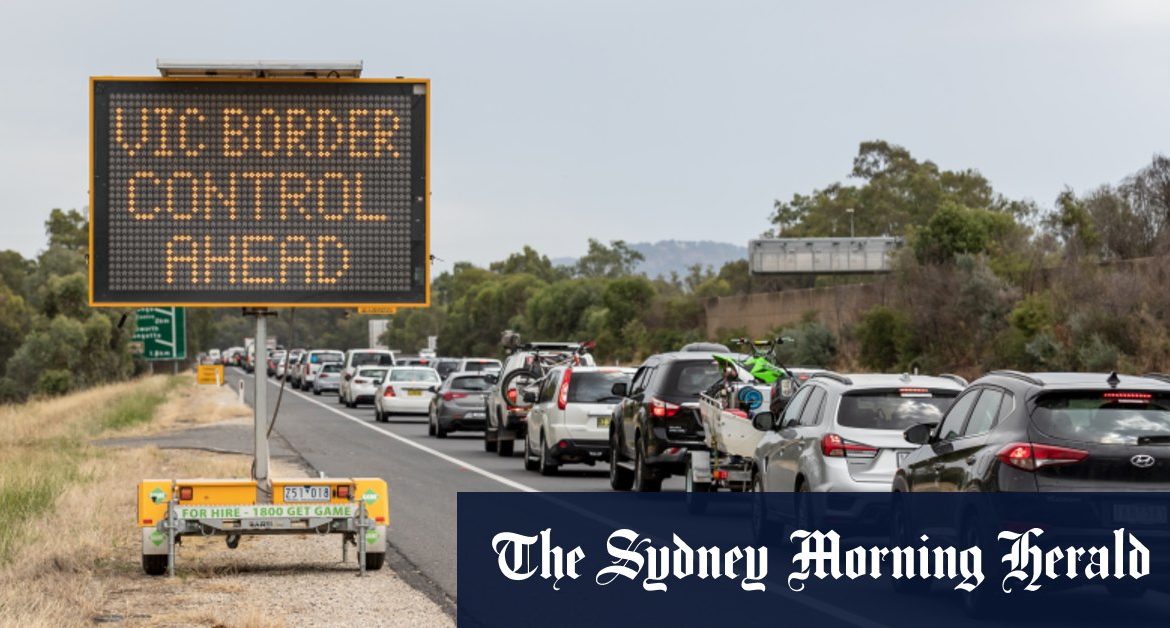Mr Westaway also called on the Morrison government to extend the JobKeeper program, which is due to expire at the end of March, but acknowledged its continuation was allowing the states to impose hard border closures.
He said the federal government should use JobKeeper’s looming expiry to force the states to the table in return for extending the subsidy.
“This song has been playing for a year now and it keeps playing to the same tune – that is, where there is a cluster, you get a big variance in response by state and territory administrations and this creates a lot of confusion for people,” Mr Westaway said.
“It’s become clear we do need to have an extension of JobKeeper beyond March.
“But the states should be held to account – if they’re going to hard borders, then they’re going to have to justify their decision to do that.”
Opposition home affairs spokeswoman Kristina Keneally said Mr Morrison wanted to “pass the buck on state borders to the Premiers, just like he did with the Ruby Princess, aged care and international quarantine”.
“The states can make their own decisions, but prime ministers should lead. It is hard to believe that John Howard, Tony Abbott or Malcolm Turnbull would have not successfully brought the states together,” Senator Keneally said.
“National Cabinet is not due to meet until February. Mr Morrison should bring that meeting forward and work with the states to protect Australians from COVID-19 and help our economy recover to keep Australians in work.”
Senator Keneally said the phasing out of JobKeeper did not “account for the increased stress on many businesses over the Christmas period, particularly in parts of Sydney and surrounding tourist regions that are feeling the stress most acutely at the moment”.
Federal Health Minister Greg Hunt on Sunday said there was no plan to extend the JobKeeper program beyond March.
Mr Hunt said there was already a Commonwealth definition of a coronavirus hot spot – a rolling three-day average of 10 cases per day – and “any states or territories that wish to use it, that stands available to them”.
He singled out Queensland, Tasmania and the Northern Territory for handling the latest outbreak in NSW with a “particularly sensitive and thoughtful approach to the border restrictions and the challenges and recognising the needs of people coming from rural NSW, areas where there are zero cases”.
“The important thing, and we are beginning to see this from Victoria, is that a pathway is found to help bring people home to Victoria,” he said.
NSW Health Minister Brad Hazzard said on Sunday his government was working through the issue of Victorians stranded in NSW with the Victorian Government. “But at this point, there’s no clarity on that,” he said.
Eden Monaro MP Kristy McBain said it was “another devastating blow for our community” when tourists fled the NSW South Coast to beat snap border restrictions.
The Labor MP called for “sustained government support” for businesses in her electorate which lost its summer tourism to bushfires last year and coronavirus this year.
“No community has suffered more throughout the past 12 months than Eden-Monaro. We have experienced a series of rolling disasters – from drought to bushfires to COVID-19 and border closures,” Ms McBain said.
Nationals Senate leader Bridget McKenzie said it was the responsibility of state premiers to work together to agree on consistent, national standards for when border restrictions are imposed and lifted.
“I have been calling since June for a consistent national approach for quarantine and the definition of a hotspot,” Senator McKenzie said.
“It’s not for want of trying at the federal level, it’s a lack of state leadership.”
“I saw those conversations going on about a nationally consistent approach all of 2020. But you can lead a premier to water, but you can’t make them drink.”
“It’s disappointing they are playing cheap, parochial, political games rather than showing leadership. They need to step up, otherwise [border closures] will keep happening.”
Senator McKenzie said many regional communities had not had any cases of COVID for more than six months.
“Obviously the federal government is looking at regional tourism support but I think it’s time the premiers took responsibility,” she said.
Anthony is foreign affairs and national security correspondent for The Sydney Morning Herald and The Age.
Mike is the climate and energy correspondent for The Age and The Sydney Morning Herald.
Most Viewed in Politics
Loading







